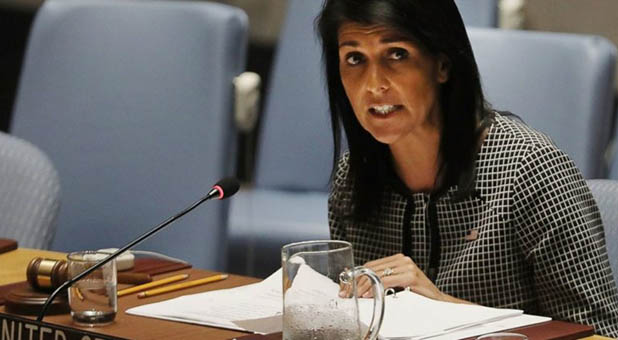U.S. Pushes for Greater U.N. Transparency
The United States has co-sponsored a resolution that was adopted requiring public meetings of the United Nations Non-Governmental Organization Committee to be webcast.
The NGO Committee is a subcommittee of the UN’s Economic and Social Council, known as ECOSOC. In a meeting of the council Wednesday, Ambassador Stefanie Amadeo, the U.S.’s deputy representative to the ECOSOC, made the following statement:
In the United States, we believe in the right of freedom of speech, making civil society partners among our best advocates and yes, on occasion, constructive critics that always push us to strive harder to improve our own domestic situation. We believe in giving civil society voice to participate in the United Nations system, and to this end, strive to accredit as many NGOs as possible through the NGO Committee’s accreditation process.
We believe that government should not be all things to all people; and therefore, we can only achieve our best outcomes with the help and engagement of our civil society partners. In the United States, civic participation is part of our very fiber; it’s not just a tool but an ethos, a spirit that infuses our daily practice of citizenship. We believe that all civil society representatives should have a voice, regardless of their views.
Civil society reflects the plurality of voices that is the foundation for any free society. It is therefore of great concern that systematic action is being taken by a number of governments to suppress the legitimate activities of civil society, including by human rights defenders, NGOs and journalists. We are even more concerned that these actions bleed over here at the UN.
During this last Committee session, we were concerned by actions taken by the NGO Committee against the provisions of ECOSOC Resolution 1996/31. For the first time, the Committee voted to ignore a rule of this parent body that we now sit in. ECOSOC 1996/31 clearly states under paragraph 56 that the non-governmental organization concerned shall be given written reasons for a decision to recommend suspension or withdrawal of its status and shall have an opportunity to present its response for appropriate consideration by the Committee as expeditiously as possible. We are concerned that the Committee voted to ignore this rule and to not even notify the NGOs that they had been suspended, let alone allow them to respond. Going forward, we want to make sure that the NGO Committee follows the rules and procedures laid out by its parent body, this very body we are currently sitting in.
Before we conclude, we also want to touch on two important resolutions that are being brought forward today and which we strongly support. The first is the resolution being brought forward by the United Kingdom on granting status for Christian Solidarity Worldwide. CSW has had their application pending for over 14 sessions and have answered over 80 questions. Throughout this overly long period, they have shown that they will be an important voice at the U.N. on issues of freedom or religion and belief, working to defend the rights of people of all faiths around the world.
The second resolution being brought forward by Chile, Uruguay and Mexico is on webcasting the NGO Committee. The NGO Committee is currently the only open ECOSOC subsidiary body that is not webcast. Given the importance of NGOs and the contributions they bring as essential stakeholder in addressing the challenges we face, their diverse voices are needed both to contribute to our ECOSOC discussions and to help us implement the 2030 agenda. Webcasting will bring much needed transparency to the NGO Committee process for NGOs around the world, especially those who are unable to make it to New York to watch the proceedings, who want accreditation. This transparency will help NGOs to support the UN and in turn its Member States as we deliver real results for our citizens.
The U.S. Mission to the U.N. stated in a press release that this change will “bring to light those countries that seek to block United Nations access for organizations that defend press freedom, that provide legal counsel for political prisoners, that document human rights abuses committed by their governments and that call out discrimination of all kinds.” U.S. Permanent Ambassador to the U.N. Nikki Haley said the vote brings increased transparency and accountability to the world body.
“Now all of these meetings and votes will be open for the world to see,” she said. “This major win at that will greatly assist organizations that stand up to oppressive governments around the world.” {eoa}















































